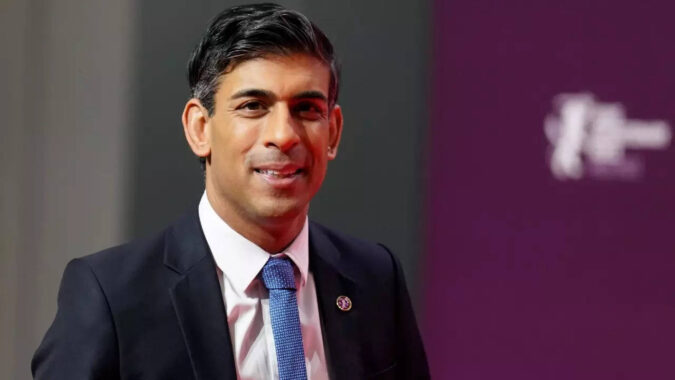LONDON: As the violence in Manipur continues to rage, UK prime minister Rishi Sunak’s special envoy for freedom of religion or belief (FROB), MP Fiona Bruce, raised concerns about “the ongoing major violence in Manipur” in the main chamber of the House of Commons on Thursday as the BBC came under fire for not reporting on the violence.
During oral questions to church commissioners, Bruce said: “Since early May alone hundreds of churches have been destroyed, many burnt to the ground; over 100 people have been killed and over 50,000 displaced;schools and seminaries also targeted in what looks like systematic and premeditated attacks with religion a key factor. Yet there has been very little reporting about this. People there are calling out for help; what can the Church of England do to draw more attention to their cries,” Bruce asked, referring to a report, produced by former BBC reporter David Campanale for the International Religious Freedom or Belief Alliance (IRFBA), which Bruce chairs.
At the May 15 meeting of the Council of Experts to IRFBA, concerns were raised about the Manipur violence, following which the report was initiated. The report includes eyewitness testimonies from victims and states that “the scale of the destruction of religious places of worship deserves far wider attention… The basic rights to freedom of worship and assembly have been directly impacted and the resources required to rebuild churches and re-establish safe facilities to freely conduct Christian services will be significant.”
MP Andrew Selous, second church estates commissioner, representing the church commissioners at the debate, replied that Bruce has “done a great service by putting this matter on the record in this House. I am sure that she, like me, would like to see much greater reporting of these issues by the BBC and others. What she has told us is truly shocking, and I know that the Archbishop of Canterbury, who visited India in 2019 to see these challenges first hand, remains extremely concerned. I will bring her report on Manipur directly to the Archbishop’s attention.”
Bruce also asked Selous what recent steps the Church of England has taken to help protect FROB in other countries. He replied that the United Nations Security Council has recently adopted a resolution to produce an annual report on FROB sponsored by the UK and the UAE.
Campanale’s report recommends the Indian government “sends sufficient national Indian Army units to protect tribal villages” and calls for a full investigation about the impact of the violence upon FROB.
It calls for access to be given to journalists, that inter-religious leaders should convene at the state level to defuse the situation, that a claims commission be established and Internet services be restored.
During oral questions to church commissioners, Bruce said: “Since early May alone hundreds of churches have been destroyed, many burnt to the ground; over 100 people have been killed and over 50,000 displaced;schools and seminaries also targeted in what looks like systematic and premeditated attacks with religion a key factor. Yet there has been very little reporting about this. People there are calling out for help; what can the Church of England do to draw more attention to their cries,” Bruce asked, referring to a report, produced by former BBC reporter David Campanale for the International Religious Freedom or Belief Alliance (IRFBA), which Bruce chairs.
At the May 15 meeting of the Council of Experts to IRFBA, concerns were raised about the Manipur violence, following which the report was initiated. The report includes eyewitness testimonies from victims and states that “the scale of the destruction of religious places of worship deserves far wider attention… The basic rights to freedom of worship and assembly have been directly impacted and the resources required to rebuild churches and re-establish safe facilities to freely conduct Christian services will be significant.”
MP Andrew Selous, second church estates commissioner, representing the church commissioners at the debate, replied that Bruce has “done a great service by putting this matter on the record in this House. I am sure that she, like me, would like to see much greater reporting of these issues by the BBC and others. What she has told us is truly shocking, and I know that the Archbishop of Canterbury, who visited India in 2019 to see these challenges first hand, remains extremely concerned. I will bring her report on Manipur directly to the Archbishop’s attention.”
Bruce also asked Selous what recent steps the Church of England has taken to help protect FROB in other countries. He replied that the United Nations Security Council has recently adopted a resolution to produce an annual report on FROB sponsored by the UK and the UAE.
Campanale’s report recommends the Indian government “sends sufficient national Indian Army units to protect tribal villages” and calls for a full investigation about the impact of the violence upon FROB.
It calls for access to be given to journalists, that inter-religious leaders should convene at the state level to defuse the situation, that a claims commission be established and Internet services be restored.
